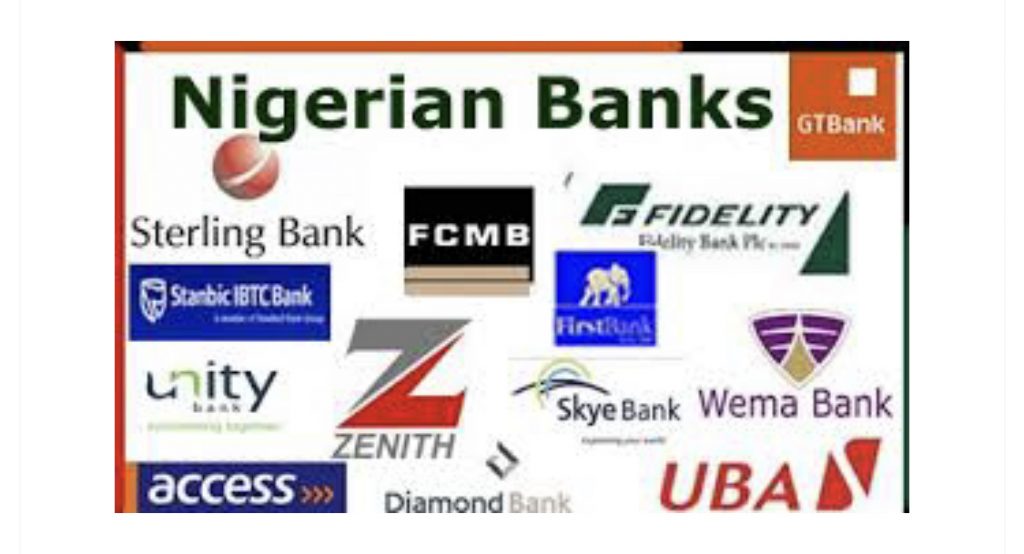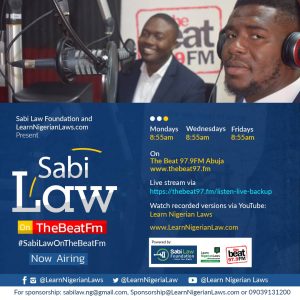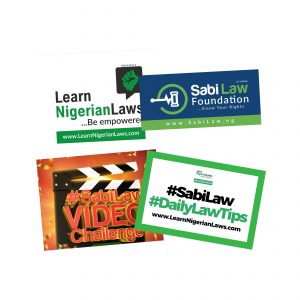Banks Should Not Refuse Affidavits/Documents Made By Notaries Public. Daily Law Tips (Tip 784) by Onyekachi Umah, Esq., LL.M, ACIArb(UK).
Introduction:
Some documents will never have value or be presumed to be valid until there are made before a Notary Public for Nigeria or some other specific persons. A Notary Public for Nigeria is a senior lawyer, that has been authorized to administer oath to persons and to certify documents in any part of Nigeria. Once a document is made before a Notary Public, the document is presumed to be legally and lawfully made.
To ensure people state only facts, people are made to make affidavits. To ensure that documents are not forged or made out of fraud, documents are required to be certified and authenticated. Also, to administer oaths, swear-in public officers, sign affidavits, authenticate and certify documents across Nigeria, the laws in Nigeria have empowered Notaries Public and some other persons to perform such duties.
However, some banks in Nigeria seem to think otherwise. Following protests from some Nigerians, that some banks in Nigeria are not accepting affidavits and documents made before Notaries Public, I reached my contacts in the banking sector. I was shocked, when it was confirmed that some banks in Nigeria prefer affidavits and documents made in courts and before Commissioners for Oath to documents made by Notaries Public for Nigeria.
Notaries Public and the Nigerian Banks:
Nigeria is a country made and guided by laws. The Banks in Nigeria are licensed and permitted to operate by the Central Bank of Nigeria and under its supervision. The Central Bank of Nigeria is a creation of a federal law (the Central Bank of Nigeria Act). Nigerian banks are highly regulated (may be highly in terms of existing regulations and not necessarily compliance), from job titles, dressing codes to operational mandates.
Notaries Public for Nigeria are created and empowered by a federal law (the Notaries Public Act, 1936). Notaries Public for Nigeria are senior lawyers appointed by the Supreme Court of Nigeria through the Chief Justice of Nigeria, to perform the duties of a Notary Public. They are sworn in by the Chief Judges their States of legal practise, on the instructions of the Chief Justice of Nigeria. The duties of Notaries Public for Nigeria, includes; the administration of oaths and certification of documents. This empowers a Notary Public in any part of Nigeria to certify and authenticate documents, as well as to administer oaths (affidavits and statements on oaths).
Clearly, the works of a Notary Public are based on the Notaries Public Act. The works of a Notary Public are valid in every part of Nigeria and even beyond Nigeria. Hence, it is unjustifiable for any bank, person or institution in Nigeria to reject any document made by a Notary Public for Nigeria. It questions the powers of Notaries Public and as such undermines the Notaries Public Act.
Furthermore, choosing documents made by Commissioners for Oaths over those made by Notaries Public is laughable and a clear sign of engraved ignorance. Although both a Notary Public and a Commissioner for Oaths can administer oaths and sign to affidavits, only a Notary Public can authenticate documents (Powers of Attorney), among them. Authentication of documents (Power of Attorney) makes a Power of Attorney to be presumed by any court of law, to have been properly executed, if authenticated by a Notary Public or any Court, Judge, Magistrate, Consul or Representative of Nigeria or the President of Nigeria.
Clearly, in section 150 of the Evidence Act, Commissioners for oath are omitted from the list of persons that can authenticate documents (Power of Attorney) for such document to be presumed to be properly made. It is pitiable that some banks in Nigeria prefer documents (Power of Attorney) executed before and authenticated by a Commissioner for oath, instead of a Notary Public.
As at today, there is no known order from the Central Bank of Nigeria, authorizing or permitting banks to choose whether to honour works of Notaries Public or not. More importantly, since Notaries Public for Nigeria are created by a federal law, no federal or state institution can tamper, bend, twist, deny or reject the powers or works of a Notary Public. Rather, any person that is not pleased with the Notaries Public, may approach the National Assembly (federal legislature) and seek for a legislative amendment.
Conclusion:
Banks in Nigeria are like any other business entities in Nigeria and should not pretend to be more. Banks are not lawmakers or courts. Banks have no powers to reject affidavits or documents made by or before a Notary Public. Notaries Public are created by a federal law, just like the regulator of the banks (the Central Bank of Nigeria). Banks cannot choose to administratively invalidate or violate a federal law. Banks are by law mandated to accept and honour all documents from a Notary Public.
Documents from a Notary Public are as valid as documents from the Chief Justice of Nigeria, a Justice of the Supreme Court, the President and Justices of the Court of Appeal, Judge of the National Industrial Court and any Judge of the Federal High Court, or any Commissioner for Oaths in any part of Nigeria. In the hierarchy/list of persons that can administer oath, by section 10 of the Oaths Act (a federal law on oath/affidavits), a Notary Public comes immediately after the Judges but before any Commissioner for oaths. Also, Commissioners for oath are not mentioned as persons that should authenticate documents (Power of Attorney) for such documents to be presumed to have been properly made. It is unbelievable, how and why some banks choose documents made by Commissioners of Oath over those made by Notaries Public.
Bank customers that have their documents and affidavits rejected by banks, merely because such documents were made by a Notary Public have legal remedies. Such bank customers should endeavour to have the banks put their rejections in writing. Where banks refuse to write their rejection, another way around it, is to record the transaction/conversation. With such proof, the concerned customers should engage the services of their lawyers.
The Nigerian Bar Association (NBA) is by this work alerted and beckoned to investigate the alleged attitude of some Nigerian banks towards the works of Notaries Public. The NBA should also remember that some years back, a commercial bank in Nigeria, advertised and paraded itself as having powers to render legal services to the public. There is need for the NBA to work hard and ensure that the services of Notaries Public are not relegated and trivialized in any part of Nigeria. #NotariesPublicMatter
My authorities, are:
- Sections 1, 2, 3, 4, 5 and 6 of the Constitution of the Federal Republic of Nigeria, 1999.
- Sections 1, 10, 11, 12 of the Oaths Act, 1963
- Sections 1 and 2 of the Notaries Public Act, 1936
- Section 1, 258 and 259 of the Evidence Act, 2011
- The Judgment of the Supreme Court of Nigeria (on the functions of Notary Public for Nigeria) in the case of Buhari V. INEC & ORS (2008) LPELR-814(SC)
- The Judgment of the Supreme Court of Nigeria (on the effect of Power of Attorney not Executed before a Notary Public) in the case of MELWANI V FIVE STAR INDUSTRIES LTD (2002) 1 SC 120
- The Judgment of the Court of Appeal (on the effect of Power of Attorney not Executed before a Notary Public) in the case of CHIEF G.N. OKOYE v. MR. NONSO DUMEBI (2014) LPELR-24155(CA)
- Onyekachi Umah, “How to Certify Documents & Make Affidavits Without Courts” (LearnNigerianLaws.com, 14 April 2021) <https://sabilaw.org/how-to-certify-documents-make-affidavits-without-courts/> accessed 27 April 2021
- Onyekachi Umah, “Effect of Power of Attorney Not Executed Before a Notary Public” (LearnNigerianLaws.com, 23 March 2021) <https://sabilaw.org/effect-of-power-of-attorney-not-executed-before-a-notary-public/> accessed 14 April 2021
- Onyekachi Umah, “You Don’t Need To Register Any Agreement In Courts or With A Notary Public” (LearnNigerianLaws.com, 2 December 2020) <https://sabilaw.org/you-dont-need-to-register-any-agreement-in-courts-or-with-a-notary-public/> accessed 14 April 2021
- Onyekachi Umah, “How To Make Power Of Attorney To Be Genuine And Acceptable.” (LearnNigerianLaws.com, 16 April 2019) <https://sabilaw.org/how-to-make-power-of-attorney-to-be-genuine-and-acceptable-daily-law-tips-tip-312-by-onyekachi-umah-esq-llm-aciarb-uk/> accessed 14 April 2021
- Onyekachi Umah, “Agreements in Nigeria Do Not Require Signatures of Notaries Public or Magistrates or Court Staff to be Legal and Binding” (LearnNigerianLaws.com, 13 January 2018) <https://sabilaw.org/daily-law-tips-by-onyekachi-umah-esq-tip-121-agreements-in-nigeria-do-not-require-signatures-of-notaries-public-or-magistrates-or-court-staff-to-be-legal-and-binding/> accessed 14 April 2021
- Onyekachi Umah, “Stamps and Seals of Courts and Commissioners for Oath Are Not Needed for Agreements To Be Valid.” (LearnNigerianLaws.com, 8 June 2018) <https://sabilaw.org/daily-law-tips-by-onyekachi-umah-esq-tip-118-stamps-and-seals-of-courts-and-commissioners-for-oath-are-not-needed-for-agreements-to-be-valid/> accessed 14 April 2021
- Onyekachi Umah, “Requirements For A Lawyer To Be Appointed As A Notary Public For Nigeria” (LearnNigerianLaws.com, 3 June 2020) <https://sabilaw.org/requirements-for-a-lawyer-to-be-appointed-as-a-notary-public-for-nigeria/> accessed 14 April 2021
- Onyekachi Umah, “It Is Not “Notary Public Of Nigeria” But “Notary Public For Nigeria” (LearnNigerianLaws.com, 30 January 2020) <https://sabilaw.org/it-is-not-notary-public-of-nigeria-but-notary-public-for-nigeria/> accessed 14 April 2021
- Onyekachi Umah, “Power Of Attorney Can Not Transfer Ownership/Title Of A Property” (LearnNigerianLaws.com, 19 July 2018) <https://sabilaw.org/daily-law-tips-by-onyekachi-umah-esq-tip-145-power-of-attorney-can-not-transfer-ownership-title-of-a-property/?> accessed 14 April 2021
- Onyekachi Umah, “Contents of a Valid Affidavit of Change of Name” (LearnNigerianLaws.com,17 May 2018) <Contents of a Valid Affidavit of Change of Name> accessed 14 April 2021
- Onyekachi Umah, “Things that Cannot Be Contained In An Affidavit” (LearnNigerianLaws.com, 15 May 2018) <https://sabilaw.org/daily-law-tips-by-onyekachi-umah-esq-tip-101-things-that-cannot-be-contained-in-an-affidavit/> accessed 14 April 2021
- Onyekachi Umah, “The Central Bank of Nigeria Notices on Cryptocurrencies; a Ban or a Banger?” (LearnNigerianLaws.com, 9 February 2021) <https://sabilaw.org/the-central-bank-of-nigeria-notices-on-cryptocurrencies-a-ban-or-a-banger/> accessed 28 March 2021.
- Onyekachi Umah, “Who Are The Shareholders Of The Central Bank Of Nigeria” (LearnNigerianLaws.com, 7 February 2019) <https://sabilaw.org/daily-law-tips-by-onyekachi-umah-esq-tip-263-who-are-the-shareholders-of-the-central-bank-of-nigeria/> accessed 28 March 2021
- Onyekachi Umah, ”How To Prove That A Bank Is Licensed In Nigeria” (LearnNigerianLaws.com, 30 March 2019) <https://sabilaw.org/how-to-prove-that-a-bank-is-licensed-in-nigeria-daily-law-tips-tip-300-by-onyekachi-umah-esq-llm-aciarb-uk/> accessed 28 March 2021
- Onyekachi Umah, “Contents Of A Genuine ATM Receipt In Nigeria” (LearnNigerianLaws.com, 19 March 2019) <https://sabilaw.org/contents-of-a-genuine-atm-receipt-in-nigeria-daily-law-tips-tip-292-by-onyekachi-umah-esq-llm-aciarb-uk/> accessed 28 March 2021
- Onyekachi Umah, “Is It Illegal To Spray Or Dance On Naira Notes (Money) In Nigeria” (LearnNigerianLaws..com, 21 December 2018) <https://sabilaw.org/daily-law-tips-by-onyekachi-umah-esq-tip-254-is-it-illegal-to-spray-or-dance-on-naira-notes-money-in-nigeria/> accessed 28 March 2021
- Onyekachi Umah, “No Bank In Nigeria Can Unilaterally Change /Vary Interest Rate In Its Agreement With A Customer” (LearnNigerianLaws.com, 23 August 2018) <https://sabilaw.org/daily-law-tips-by-onyekachi-umah-esq-tip-168-no-bank-in-nigeria-can-unilaterally-change-vary-interest-rate-in-its-agreement-with-a-customer/> accessed 28 March 2021
- Onyekachi Umah, “Use/Demand for Foreign Currency in Nigeria is a Crime” (LearnNigerianLaws.com, 7 June 2018) <https://sabilaw.org/daily-law-tips-by-onyekachi-umah-esq-tip-117-use-demand-for-foreign-currency-in-nigeria-is-a-crime/> accessed 28 March 2021
- Onyekachi Umah, “Can the Central Bank of Nigeria blacklist a Bank Employee?” (LearnNigerianLaws.com, 29 March 2021) <https://sabilaw.org/can-the-central-bank-of-nigeria-blacklist-a-bank-employee/> accessed 28 April 2021
- Pic Credit: nigerianfinder.com
Sabi Law Projects:
#SabiLaw
#DailyLawTips
#SabiBusinessLaw
#SabiElectionLaws
#SabiHumanRights
#SabiLawOnTheBeatFm
#SabiLawLectureSeries
#CriminalJusticeMonday
#SabiLawVideoChallenge
Speak with the writer, ask questions or make inquiries on this topic or any other via onyekachi.umah@gmail.com, info@LearnNigerianLaws.com or +2348037665878 (whatsapp). To receive free Daily Law Tips, join our free WhatsApp group via https://chat.whatsapp.com/L7h4f1exItZ38FeuhXG4WN or Telegram group, via the below link: https://t.me/LearnNigerianLaws
To keep up to date on all free legal awareness projects of Sabi Law Foundation, follow us via
Facebook Page:@LearnNigerianLaws,
Instagram:@LearnNigerianLaws,
Twitter: @LearnNigeriaLaw,
YouTube: Learn Nigerian Laws,
WhatsApp Groups via (https://chat.whatsapp.com/L7h4f1exItZ38FeuhXG4WN),
Telegram Group: (https://t.me/LearnNigerianLaws),
Facebook group: (https://www.facebook.com/groups/129824937650907/?ref=share)
or visit our website: (www.LearnNigerianLaws.com)
Please share this publication for free till it gets to those that need it most. Save a Nigerian today! NOTE: Sharing, modifying or publishing this publication without giving credit to the author or Sabi Law Foundation is a criminal breach of copyright and will be prosecuted. This publication is the writer’s view not a legal advice and does not create any form of relationship. You may reach the writer for more information.
This publication is powered by www.LearnNigerianLaws.com {A Free Law Awareness Program of Sabi Law Foundation, supported by the law firm of Bezaleel Chambers International (BCI).} Sabi Law Foundation is a Not-For-Profit and Non-Governmental Legal Awareness Organization based in Nigeria. For sponsorship and partnership, contact: sponsorship@learnnigerianlaws.com, sabilaw.ng@gmail.com or +234 903 913 1200.






















































